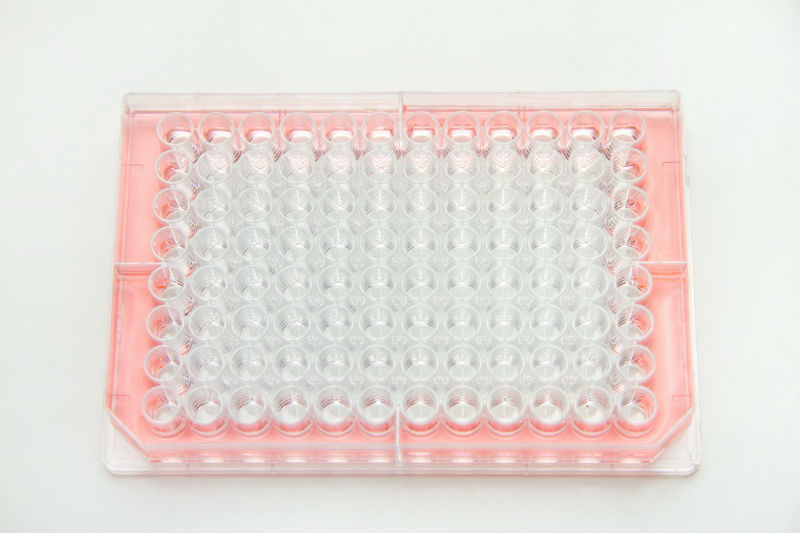A new 96-well plate is engineered to virtually eliminate evaporation during lengthy incubation, enabling full-plate usage and increased well-to-well cell consistency for improved productivity in cell culture assays at a cost comparable to a standard 96-well plate.
The Thermo Scientific Nunc Edge 2.0 96-Well Plate features a surrounding moat that, when filled with sterile water or media, serves as an evaporation barrier during extended incubation. As a result, edge effect and its associated risks of heterogeneous or biased results decrease.
Even after long incubation periods of up to four days, the overall plate evaporation rate is reduced to less than 2 percent. More samples per plate can therefore be analyzed, increasing assay performance with potentially less cost and related product waste.

Thermo Scientific Nunc Edge 2.0 96-Well Plate features a surrounding moat that, when filled with sterile water or media, serves as an evaporation barrier during extended incubation (Credit: Thermo Fisher Scientific Inc. / Business Wire)
Due to its large evaporation buffer zones, the unit is designed to eliminate well-to-well variability for optimal cell consistency across all of its 96 wells.
“When it comes to growing healthy, viable cells in extended microplate cultures, evaporation is a common yet significant challenge that researchers face,” Norman Yung, vice president and general manager, labware and specialty plastics at Thermo Fisher Scientific, said. “To minimize evaporation and mitigate its negative effects, researchers typically avoid using the outer wells of a standard 96-well plate, ultimately sacrificing 37.5 percent of the plate’s available real estate.”
With the new Edge 2.0 plate, scientists can reclaim full use of their plate without encountering edge effect. Researchers can also benefit from potential cost savings as a result of using and discarding fewer plates per experiment, according to the company, which added that the price is comparable to a standard 96-well plate.
It is available with both cell culture-treated and non-treated surfaces to suit a range of lab applications. Untreated surfaces allow researchers to add the required coatings themselves, while also being hydrophobic and thus appropriate for growth of suspension cultures that can proliferate and grow without attachment.
Conversely, the certified culture-treated option is designed to facilitate cell attachment and growth and is suited for applications with adherent cell cultures.
Thermo Fisher Scientific Inc., with revenues of $17 billion, employs more than 50,000 workers in 50 countries.




